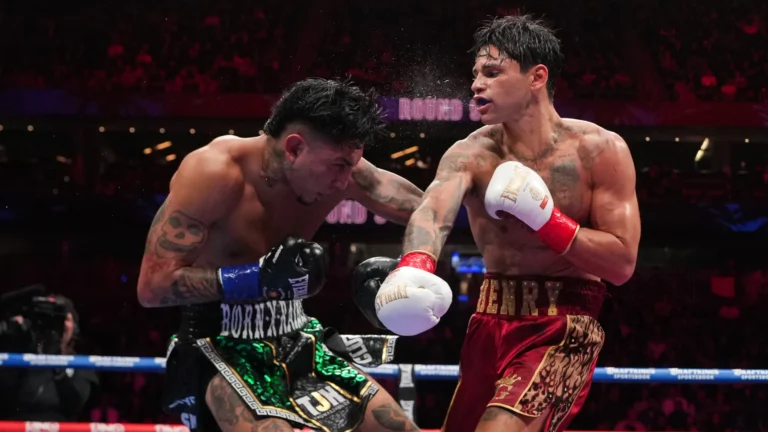
You won’t find many writers filled with more self-doubt about their writing talent than me, at least as far as I know.
I simply don’t think I’m very good at it. It doesn’t come naturally. Never has. Never will, probably.
I bring this up because of what I learned reading a book titled Grit: The Power of Passion and Perseverance by Angela Duckworth, a professor of psychology at the University of Pennsylvania. This book goes deep on what grit is within human beings and how those who have it – the tenacity to persevere through tough times and never give up no matter what – usually end up being more successful even when they have less natural talent.
Talent-challenged was how I definitely felt in high school.
I got a very mediocre score on the verbal section of the SAT: 490 out of a possible 800. By national standards, that’s about average at best. The score didn’t suggest to me or anyone else that I was brilliant with words and was destined to be an accomplished professional writer.
Everything about that test I detest: the apprehension heading into it, suffering through it, receiving my score, talking with classmates about what they scored, meeting with college counselors telling me all the colleges my score was high enough for, ruminating about why I didn’t score higher, being bothered about the score all my life.
Also, my grades through 16 years of English classes were pedestrian at best. Not one of my English teachers pulled me aside and said, “Hey, you’ve got writing talent. You should think about becoming a writer.” It never happened. This is not to blame them. I just want you to know the truth so we have meaningful context.
Nothing bothers me more than that unimpressive, and if I’m being honest, embarrassing SAT score. I am not proud that I rarely consider the millions of people who scored around my level or lower. A pity party for myself for more than four decades is what I’ve been having. It’s unbecoming but real. Honesty often reveals us to be unappreciative, though at least courageous.
With SAT regrets still bothering me to this second, I couldn’t believe it when I read in this grit book that John Irving, who wrote a rather funny and widely read book called The World According to Garp, scored even lower than me on that dastardly and horrendously damaging test: a 475 on the verbal section. In his high school English class, he got an unremarkable C-.
Although he wrote more than a dozen novels, several of which became best sellers, he was not gifted verbally in high school – pretty much like me, I sense – yet plowed ahead anyway. In the boo,k he described the “grit” he needed to succeed as a writer.
“Most of all, I rewrote everything…I began to take my lack of talent seriously,” he says in the book. “I learned that I just had to pay twice as much attention. I came to appreciate that in doing something over and over again, something that was never natural becomes almost second nature…to do anything really, you’ll have to overextend yourself.”
Here in this book is proof that I’m not the only person who has become a professional writer without the natural brain power to whiz through and get most of the SAT verbal section questions correct. I have to tell you this is a lift to my emotions and hopes that maybe if I keep overextending myself, this writing will get better. I’m not trying to be John Irving, just better at what I do.
It’s not as if I have much choice. At this point, there’s no turning back. I committed to being a writer long ago, as impractical as it may have seemed then and now. The only path now is to do what Irving did: write and rewrite and rewrite, whether I’m smart or not. Like Irving, I take this craft seriously. Rewriting and then doing it again is definitely a big part of this process.
Writing is Failure
While we’re on the subject of writing, let’s explore the insights shared in the book by a journalist named Ta-Nehisi Coates.
“Failure is probably the most important factor in all of my work. Writing is failure. Over and over and over again.”
It gets more downcast.
“The challenge of writing is to see your horribleness on the page. To see your terribleness. And then go to bed. And wake up the next day. And take that horribleness and that terribleness. And refine it. And make it not so terrible and not so horrible. And then go to bed again.”
What I’m writing now feels pretty horrible and terrible. I will refine it later, and it may get slightly better. This is what writers do. They throw stuff down (like heaving paint randomly at a canvas), look at it, wonder if any of it is worth anything, think it over, and keep going. It’s a crazy way to live in some ways, but everyone does whatever they do, and that may feel crazy to them at times also or to others looking in. Life itself has been called crazy, so it all kind of fits.
I guess you could say writing is a gritty way to live if – and this if is key – you keep persevering no matter how awful the words come across to you. All this is is typing another letter and then another. That’s all.
Effort vs. Talent
What I’m really thinking about now, as I reflect on this book, is how I feel pretty untalented as a writer, but I will give myself credit for putting forth effort. My father used to be more impressed with my effort grades on my report cards than my actual course grades. He would often say, “It’s about the pursuit of excellence, not being excellent.”
A wise man my Dad was. He had his priorities lined up on this key insight. Just try. And never stop trying. Effort is more important than natural ability. As a kid, this didn’t quite make sense to me, but now, decades later, it does. The book explores these ideas.
“When you consider individuals in identical circumstances, what each achieves depends on just two things: talent and effort. Talent – how fast we improve in skill – absolutely matters. But effort factors into the calculations twice, not once. Effort builds skill. At the very same time, effort makes skill productive.”
Right now, a writer is putting forth effort. His talent – my talent – really isn’t as important as that I keep typing, no matter how lame the sentences feel coming onto this page. Mental toughness to press on is what I need. The prose will get better. Or, even if it doesn’t, even if this whole thing deteriorates, if the effort is there, I am approaching this the right way. This is all this is. It’s important to me. To others, maybe not.
In life, we don’t know what the results will be. We can’t control whatever natural talent we’re born with. But effort – it’s all available to harness if we have the grittiness to keep going. Type more and some more and some more. Think, edit, rephrase. Do what I think will make this better. Practice endlessly. For that alone, I have done my part. It’s something. It’s not nothing.
Deliberate Practice
This point about deliberate practice resonates big-time with me. I have known for decades that one of my weaknesses as a writer is organizing the sequence of what I write. It’s hard for me to figure out the logical flow of points so they unfold naturally.
So to write this and many other articles, I spend extra time practicing the skill of organizing how I’m going to write something before I type a word. It’s not fun. I don’t like how I feel when doing this. It rattles my self-confidence. I don’t like having to practice what I don’t do well and don’t enjoy, but I need to sharpen this skill to improve my writing.
So I do it. The rewards may come later, which will be self-satisfaction mostly, not anything external. The author of the book stresses the importance of practicing what you don’t do well to become an expert at your craft.
“Experts zero in on just one narrow aspect of their overall performance…strive to improve specific weaknesses.”
Follow Through
Related to this, focusing is this notion of following through on whatever you do. Let’s say right now I just gave up on this article and decided I don’t like it and don’t have a belief it can be better, and that people won’t benefit from reading it. Halting would not be following through. A big no no in the view of this book author. She makes it clear that gritty people – successful people – finish what they start.
She uses examples of high school students who play two or more sports and stay on those teams, typically end up being more gritty and successful than and later in life than students who only play one sport or none at all. And this principle applies to various other extracurricular activities students can engage in. The author writes:
“Students who earned a top follow-through rating participated in two different high school curricular activities for several years each and advanced significantly in some way. Students who hadn’t participated in a single multi-year activity earned the lowest possible follow-through rating.”
I played two sports in high school, baseball and basketball, and I wonder if that made me then, and now, more gritty in my determination to become a better writer. I suppose it has. Quitting my craft doesn’t really enter my mind. It’s what I’ve committed to, just like when I joined the basketball and baseball teams. Stopping midseason was never a thought of mine. I stayed with what I signed up for then and am doing so now.
Make it a Habit
Speaking of consistency, I learned a long time ago about the value of writing in the same place every day, which I am doing right now at Starbucks in my usual chair at the same table. This may seem irrelevant to productivity, but I think there’s something to it. When I get here, I don’t have to spend any time looking around at what’s here because I already know. There isn’t much to distract me. I can get down to writing quickly and go into a writing trance, often for a few hours, without even thinking about the fact that I’m in a public coffee shop. The author writes about the benefits of habits such as mine.
“When you have a habit of practicing at the same time and in the same place every day, you hardly have to think about getting started. You just do.”
Flow
Practice is what I believe in. I’m going to wrap up my thoughts about this book with one of the coolest memories of my life related to practice. After my senior year basketball season, I was selected to play on a high school all-star team with many talented players.
In the first game, I scored 28 points and in the second 26 – the high scorer in both games and higher than any other high school games I played in. I don’t know how or why this happened in those two games. Everything felt easy: scoring, dominating, grooving. I didn’t think about what was going on. Shots kept going in. No one could stop me. It was sort of like a mystical and blissful state of floating around the court doing whatever I wanted. I owned the court. It was mine.
Every minute of practice, all the drills, a decade of sweating and toiling on basketball courts all over the place, being alone doing drills, culminated in two basketball games. Everything came together – finally. This, I believe, was my most memorable experience of flow, which the author describes:
“Grittier people reported experiencing more flow. Flow and grit go hand in hand..You feel like you’re in complete control because you are. You’re floating. You lose track of time…everything feels effortless.”
Those two nights on the basketball court, I lost track of where I was, who I was playing against, who was coaching me, and who was watching. No one was controlling me. It felt free and easy and really cool.
I had the basketball game to myself. Experiencing that felt like I was flying somewhere unencumbered, effortlessly and perfectly, doing what I had always hoped to do.
Because I had practiced. Because I had followed through. Because I had been gritty.
Author Profile

-
Sammy Sportface, a sports blogger, galvanizes, inspires, and amuses The Baby Boomer Brotherhood. And you can learn about his vision and join this group's Facebook page here:
Sammy Sportface Has a Vision -- Check It Out
Sammy Sportface -- The Baby Boomer Brotherhood Blog -- Facebook Page
Latest entries
 BonusJuly 21, 2025One Time Rudy Said to Sportface…
BonusJuly 21, 2025One Time Rudy Said to Sportface… BonusJuly 19, 2025New Top Album Names – All-Time
BonusJuly 19, 2025New Top Album Names – All-Time BonusJuly 18, 2025Why AI is Scary – and What’s Likely to Happen
BonusJuly 18, 2025Why AI is Scary – and What’s Likely to Happen BonusJuly 16, 2025Sportface Gets Svelte, Chicks Can’t Stop Checking Him Out
BonusJuly 16, 2025Sportface Gets Svelte, Chicks Can’t Stop Checking Him Out







